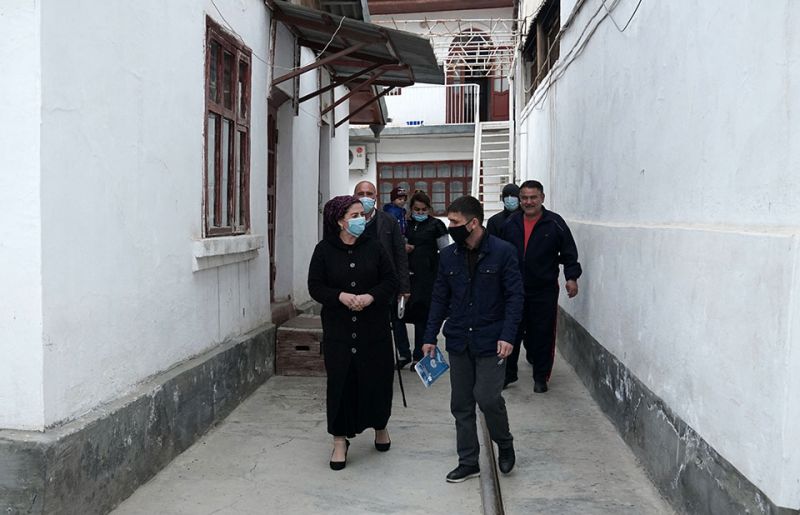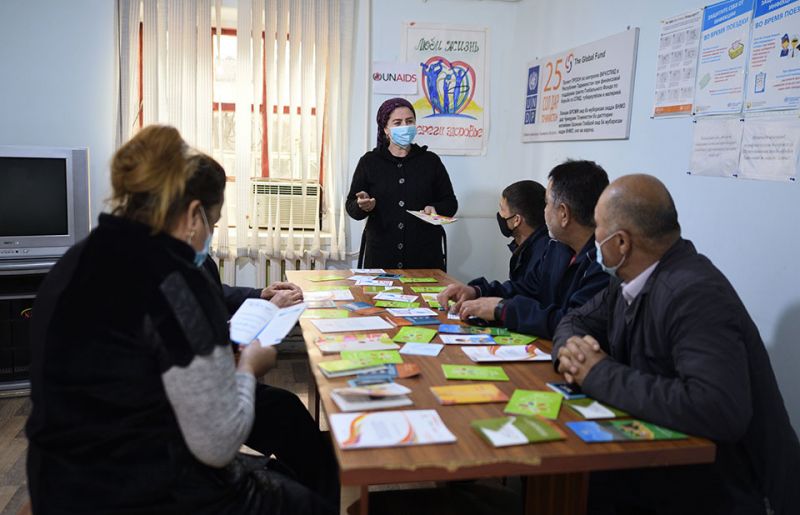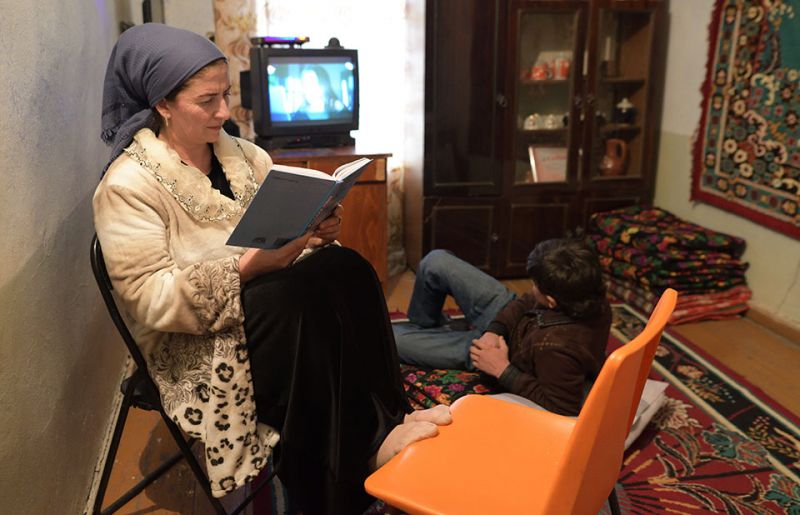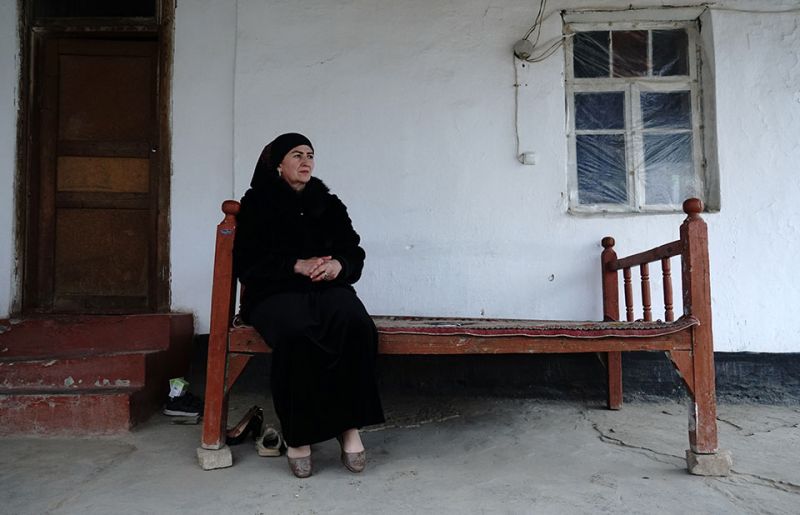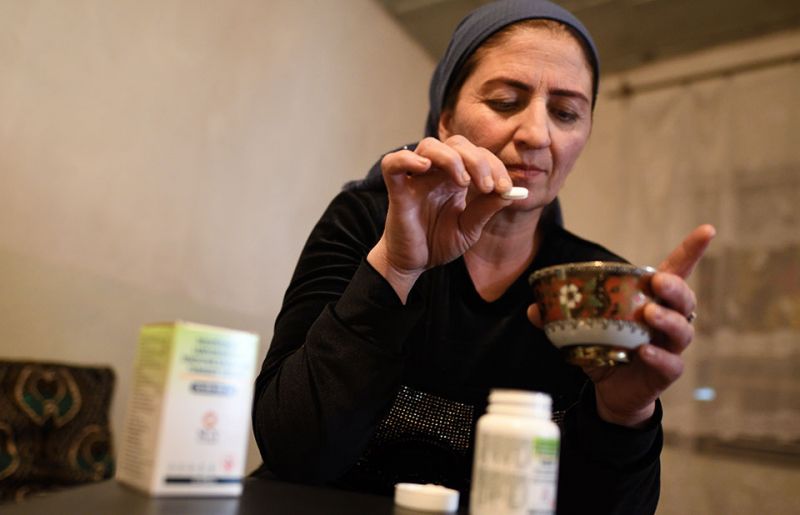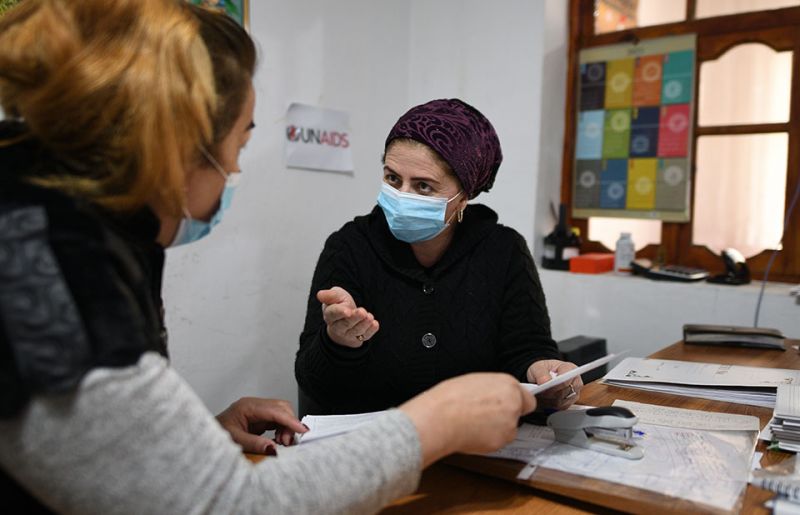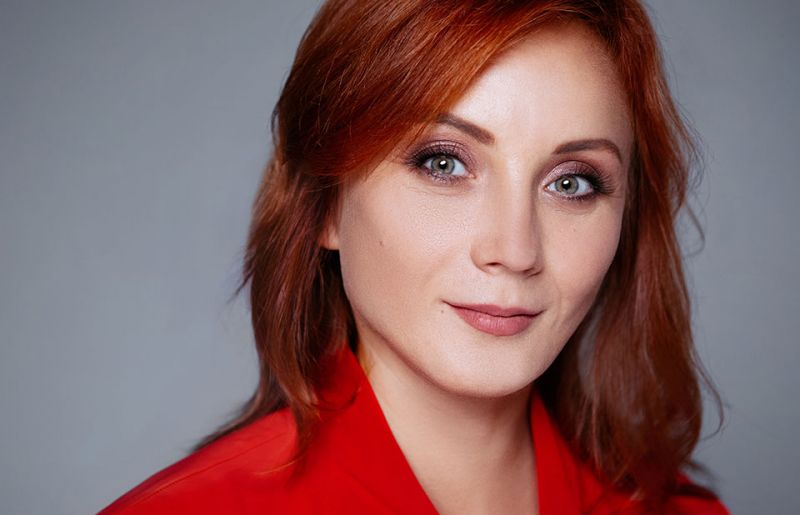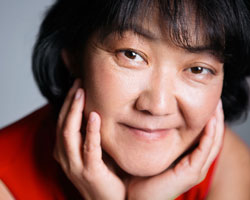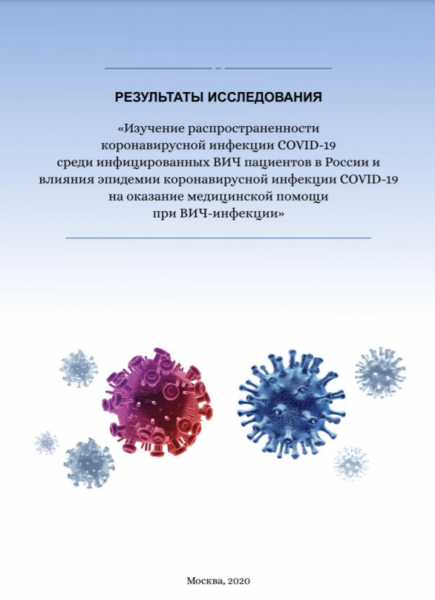Nadezhda Kilar’s battles with her health service providers began several years ago. “I did not agree with how obstetrics services for women living with HIV are provided in our city,” said Ms Kilar. “From admission to discharge, there was a constant violation of rights.”
Ms Kilar, who lives in Tiraspol, in the Republic of Moldova, has been living with HIV for several years. Her antiretroviral therapy has suppressed her viral load to undetectable levels, but during pregnancy and childbirth she was isolated. She was kept in an isolation ward, gave birth in a separate delivery room and after giving birth was placed in a special room for women living with HIV—a room with bars on the window.
“All the other women leave through the front door, where relatives meet them with flowers and a photographer. But I was let out through the back exit, where there are garbage cans,” she said.
And the discrimination did not stop with her. “Although my son does not have HIV, in the maternity hospital he was alone in a separate special room, under a sign with “HIV contact” written on. Why should a child feel this stigma?” Ms Kilar said.
“I want to give birth to my next child in a normal maternity hospital. And I do not doubt that it will be so. For something to change, a lot still needs to be done, but the main thing is I must defend my rights,” she said.
Ms Kilar’s relationship with her husband started to break down after he became violent towards her. For a long time, she didn’t do anything about it, as she thought that violence was the norm. “My father often beat my mother; I myself was twice in hospital after his beatings.” Not knowing what to do, she sank deeper and deeper into depression. “I didn’t want to live,” she said.
But change slowly came about. When she realized that she could not cope with her financial problems, the violence and her depression, on the advice of a peer consultant at the HIV clinic she attends in Tiraspol she joined the Women’s Mentoring Programme, along with 20 other women living with HIV from different communities in the area. The Women’s Mentoring Programme, a joint project of UN Women and UNAIDS and supported by the Government of Sweden, works through peer consultants and mentors to help women living with HIV to understand and identify their problems, learn about their rights and get support in the fight against violence and discrimination.
“I understood that it would not be the same as before. I realized that I would not tolerate the beatings,” Ms Kilar said.
Since 2019, Ms Kilar has been working in a sales job and has been studying at the university to become a teacher. “It’s not easy for me. I do not sleep much at night, but I have gained confidence that I can solve problems on my own,” she said.
Iren Goryachaya, the Programme Coordinator for the Women’s Mentoring Programme, explained that the programme provides a range of services. “We not only deal with the issues of discrimination in a health-care institution or the fight against violence—we see a woman as a person from different perspectives. First, it is important to help women accept their HIV status and overcome self-stigma. Without this, it is impossible to achieve a different attitude towards herself either from doctors or men.”
“Often, women in the Republic of Moldova have insufficient access to reliable information about HIV. They still cannot defend their right to safe sex. Various forms of violence, including sexual violence, the widespread violation of women’s rights and the controlling behaviour of men further aggravate the situation. All this deprives women of the opportunity to defend their right to health,” said Svetlana Plamadeala, the UNAIDS Representative for the Republic of Moldova.
Ms Kilar looks to the future with confidence. “I see myself as a free woman. I do what I want. My children are growing up in a safe environment. I don't worry about my HIV diagnosis. If I decide to have another child, I will give birth in a normal hospital.”



